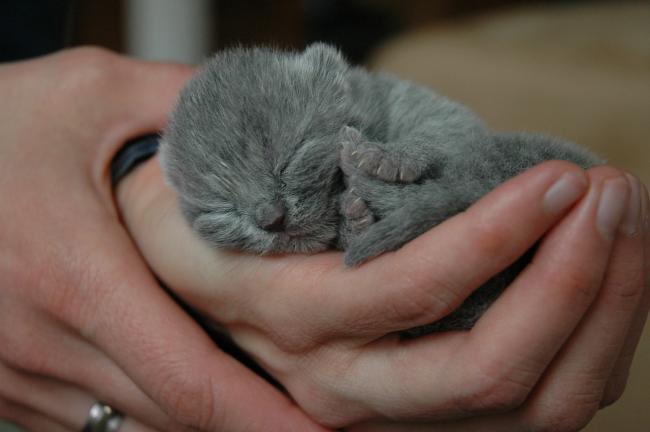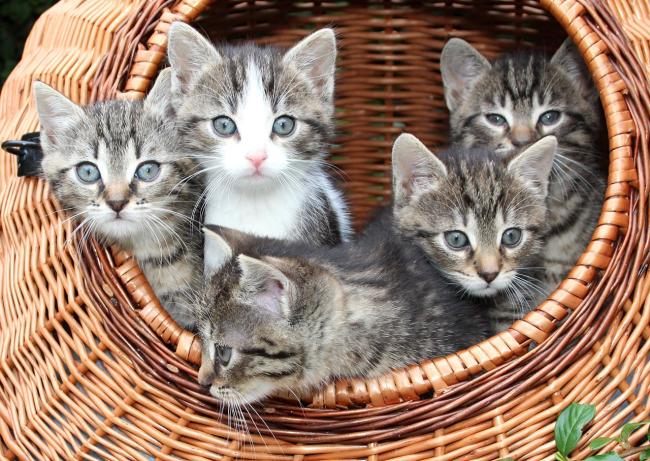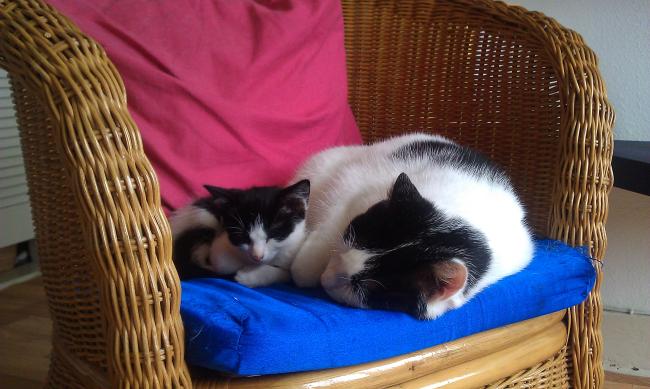Owning a cat can be an extremely rewarding experience. And if you make the right choice, you'll enjoy the companionship of your feline friend for many years to come. However, a cat should never be purchased on a whim. It's a sad fact that, once the novelty of owning a new kitten inevitably wears off, all too many end up at the local animal shelter. There are countless 'unscrupulous' breeders too. Fortunately a 'bad buy' can be averted: step through our handy questionnaire and you'll be ready to find the perfect cat for you, for life!

1) Should I get a kitten or an adult cat?
Kittens might look adorable, but they grow up so fast! And, even though they're incredibly sweet, they're also extremely hard work: kittens are full of mischief and will think nothing of dangling from your favourite pair of curtains, or pouncing on your toes in bed. They also require proper care and training. And did you know that cats often live to between 15 and 25 years of age? A kitten is only such a cute little bundle for a few weeks, yet remains a lifelong responsibility. Don't forget there are plenty of quieter, sweet adult cats looking for good homes too. Perhaps an older cat is more suited to your current situation?
2) Should I get one or two kittens?
One cat is nice, but two will keep each other entertained. They can play and indulge in typical cat behaviour together, such as grooming and snuggling together. If you decide on a kitten, then a little brother or sister is particularly beneficial for socialisation. In this case, it's best to take two from the same litter, or of approximately the same age. Two female kittens are ideal, although two males or one male and one female can also live happily together. If you decide on one or two male kittens, then make sure you have them neutered before they mature. This will prevent undesirable 'macho' behaviour, as well as unwanted litters if there's an un-neutered female on the scene. Females too should always be spayed in order to prevent pregnancy.

3) An indoor or an outdoor cat?
Cats are true adventurers: they adore hunting, exploring and chasing birds and other small animals. It's therefore important to provide a new cat with sufficient space to explore and play - preferably within the bounds of your property, according to the RSPCA. If you don't benefit from a contained outdoor space and have to keep your cat inside, then give him or her plenty of opportunity to 'monkey around' with a selection of cat toys, climbing towers and tunnels. Perhaps you're planning on getting an older cat that's accustomed to being outside? Then make sure you live somewhere that allows them to safely enjoy the outdoors (such as in a contained property, or under supervision). And don't forget to have your new cat microchipped and registered.
4) Where should I get my kitten from?
Though kittens can be purchased online or in newspapers, encouragement of the 'backyard breeder' industry isn't ideal when there are so many cats needing homes in shelters and rescue organisations. You can also purchase a kitten from a reputable breeder. Regardless of where you get your kitten though, it's essential to make sure it comes from a healthy litter. Whilst kittens can legally be removed from their mother at 8 weeks of age, it's preferable to wait until at least 10 weeks. This is because young kittens have insufficient immunity and rely on their mothers for socialisation. Kittens that are weaned too early often develop behavioural problems, such as aggression or anxiety. And, as removing a kitten from its mother is so stressful, they can also suffer from health problems if this happens too soon. Kittens that are old enough to be homed will already be capable of eating independently and using their litter tray. A healthy kitten will be curious, lively and active and will have clear, bright eyes. A good registered breeder will show you the mother, ask questions and want to know where the kitten is going. Does your instinct say 'no'? Don't buy the kitten just because you feel sorry for it. Instead, look for a more suitable cat from a reliable breeder.<br>Pet shops should be avoided, by the way, since you can't determine where they source their kittens. More than likely, they're coming from a kitten farm where they are bred under terrible conditions.

5) Can I afford a kitten?
Though a kitten might not be expensive, you should also take into account the ongoing costs, such as daily food, toys, scratching posts, cat litter, vaccinations, veterinary fees, cat sitting or boarding expenses and pet insurance. A new cat also costs time: although cats can happily entertain themselves, kittens and young cats in particular require plenty of exercise, play and cuddles. You'll need to devote a minimum of half an hour per day to such activities. A kitten will almost certainly demand constant attention (luckily you'll likely be unable to tear your eyes way from your kitten's adorable antics!), so it's best to factor in time for this.
Already thought through your answers and all set to get your cat or kitten? Congratulations! Cats make charming companions and offer many years of fun and friendship. Think your little ball of fluff is the most adorable in the world?! Then tag your cat photo with #PawshakePaws at Instagram and we'll maybe showcase your kitty on our page.






